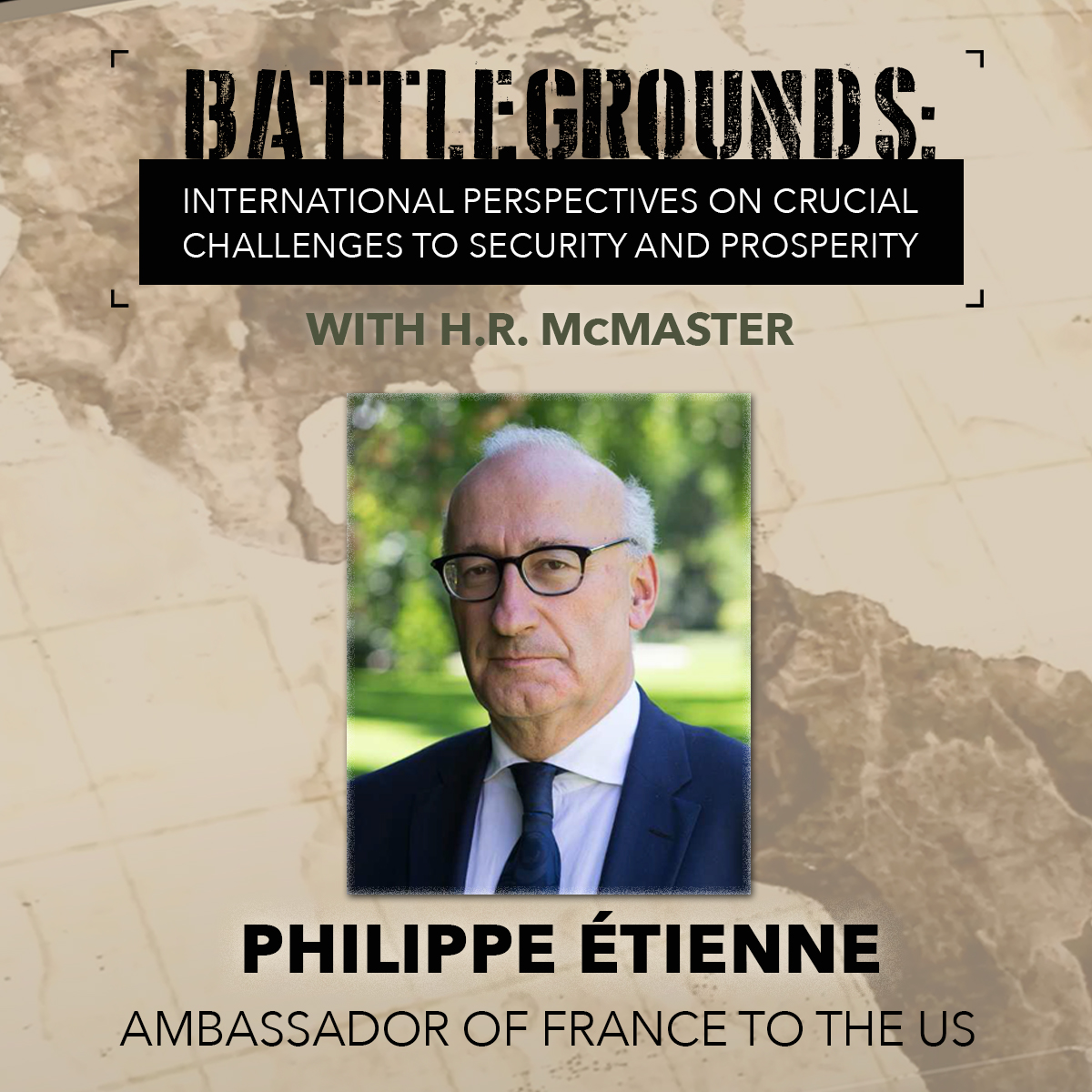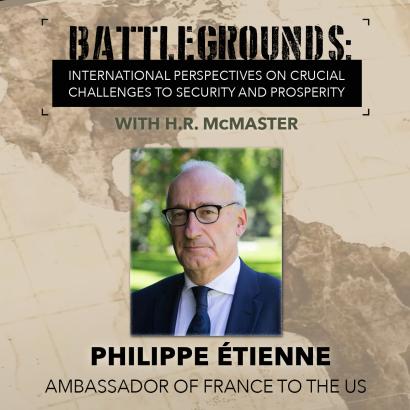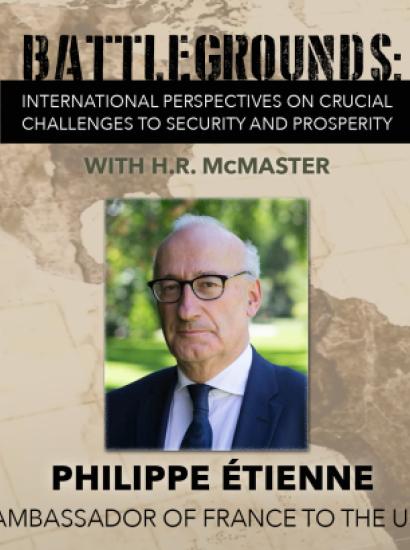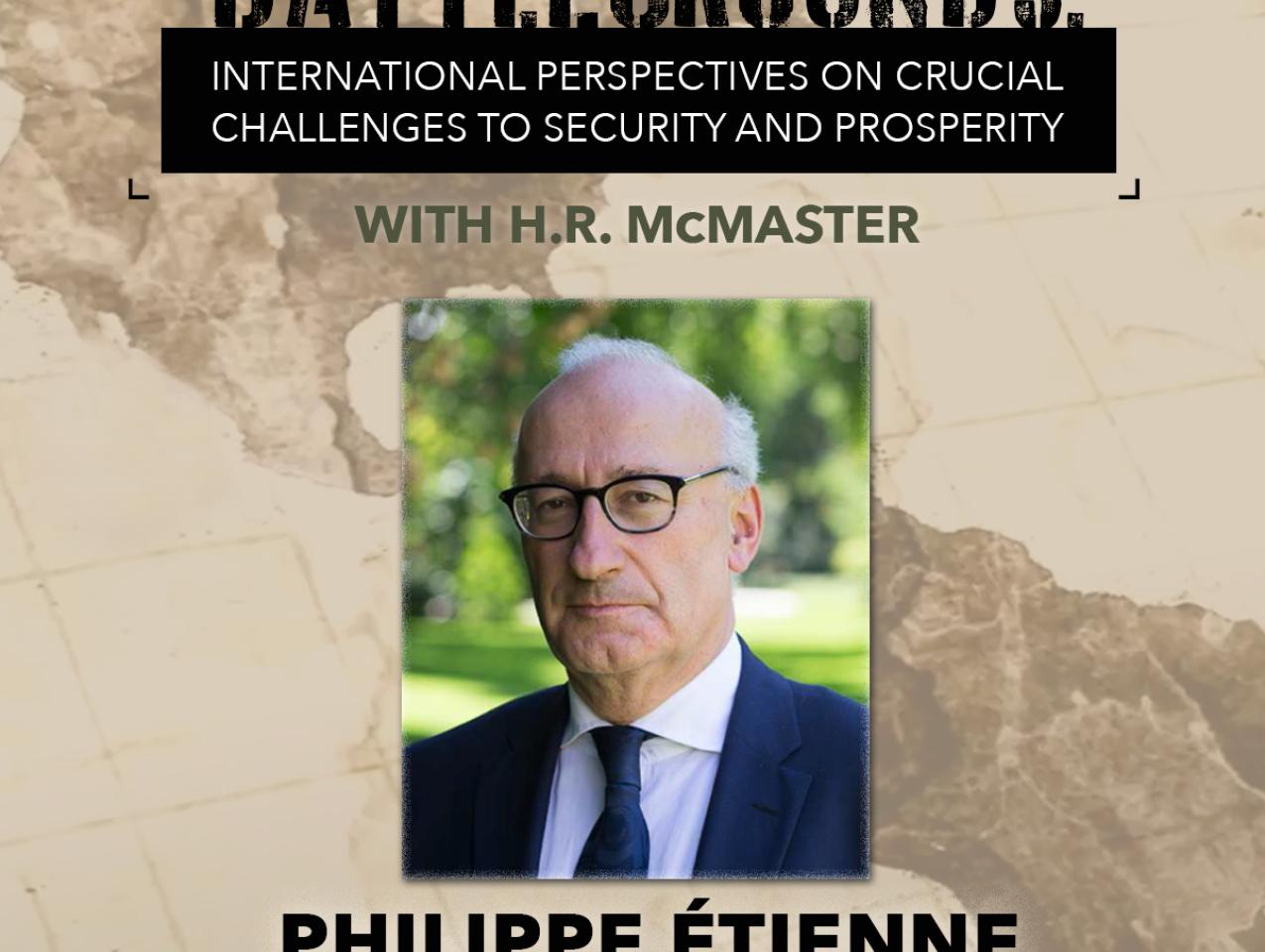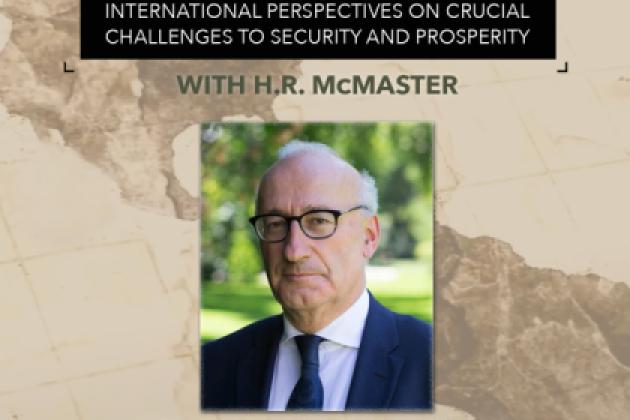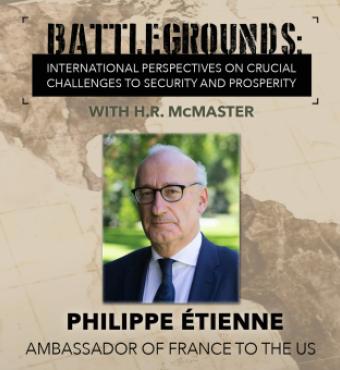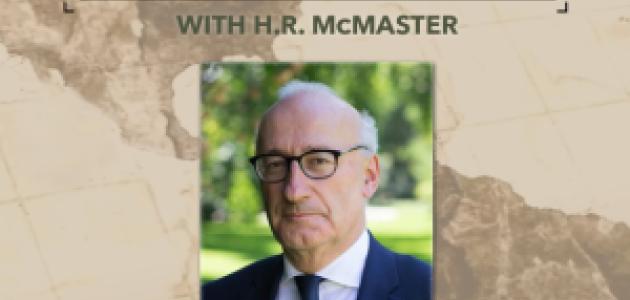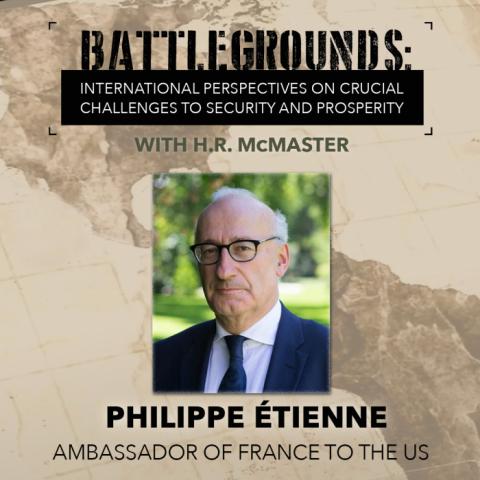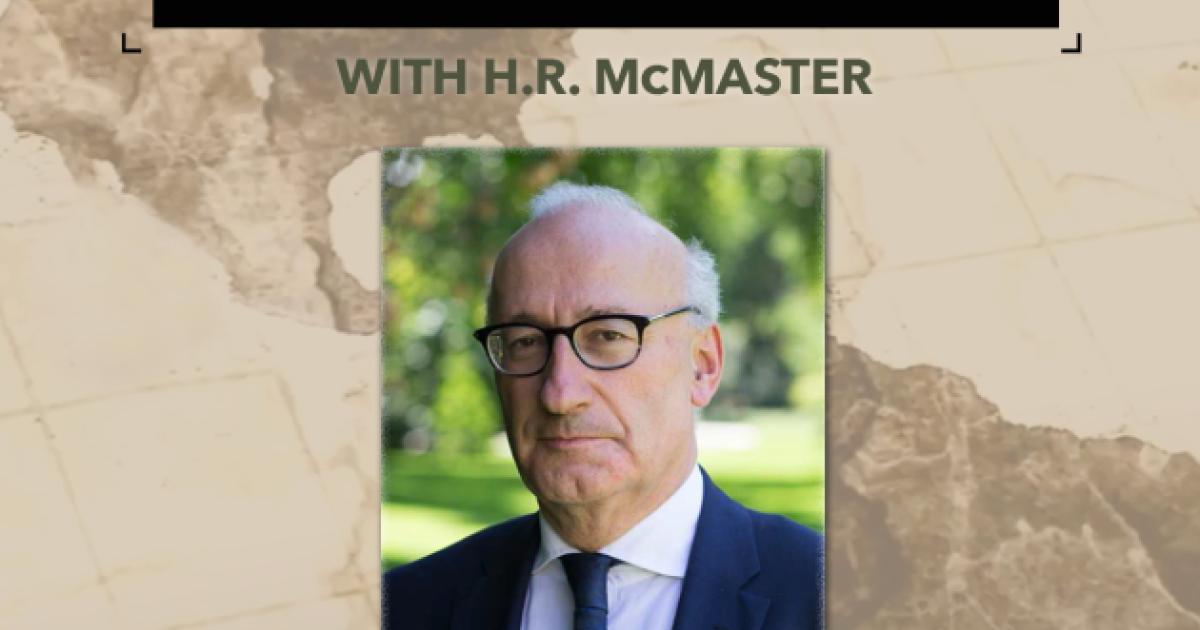- International Affairs
- Key Countries / Regions
- US Foreign Policy
- Security & Defense
- Terrorism
- History
- Economic
- Military
- Contemporary
- US
- World
In this episode of Battlegrounds, H.R. McMaster and Philippe Étienne discuss energy security, the European Union’s recovery from COVID-19, intra-EU relationships combatting terrorism in West Africa and competitions between authoritarianism and democracy.
H.R. McMaster in conversation with Philippe Étienne on Wednesday, April 28 at 9:00am PT.
WATCH THE LIVESTREAM @ 9AM PT
Continue this conversation and learn more about France with the podcast of the Embassy of France, FrancoFiles.
In this episode of Battlegrounds, Fouad and Michelle Ajami Senior Fellow H. R. McMaster interviews Philippe Étienne, France’s ambassador to the United States. Topics in this conversation include the geostrategic challenges posed by Turkey’s aggression in the Middle East and Mediterranean regions; Russia’s attempts to violate the sovereignty of Ukraine; challenges to European cohesion; the state of American-European relations; the Paris Climate Accords; and the Joint Comprehensive Plan of Action, otherwise known as the Iran nuclear deal.
Étienne says that there are reasons to be concerned about the actions of Turkey, a NATO ally, for its confrontational stance against Greece over oil and gas exploration in the Eastern Mediterranean, and its support of extremist groups in Syria’s north during the course of that country’s civil war. Most recently, Turkish president Recep Erdoğan brokered a $2.5 billion deal with Russian president Vladimir Putin to purchase an S-400 mobile surface-to-air missile system, posing further risk to the NATO alliance.
Étienne explains that France and other European countries are committed to protecting Ukraine’s sovereignty and territorial integrity against Russian aggression, especially in light of Moscow’s recent build-up along the southwest border. He also notes that while France has never recognized Russia’s annexation of Crimea in February 2014, Paris co-led the mediation of a ceasefire agreement between Moscow and Kiev in September of that year. Étienne notes that European leadership continues to be vigilant of Russia’s efforts to subvert democracy and aggravate existing divisions within EU member states. He maintains that the European Union has been resilient despite internal differences, as well as setbacks including the financial collapse of 2007–8, the refugee crisis beginning in 2014, and most recently the COVID-19 pandemic. He lauded last year’s $2.1 trillion COVID-19 rescue package for struggling economies, especially in southern Europe, as the EU’s “Hamiltonian moment.”
Étienne addresses criticism of the European Union’s investment agreement with China and allegations that it is weakening its relationship with the United States in favor of a policy of “strategic autonomy.” He argues that Washington should look favorably on Europe for seeking to become less reliant on the United States, while explaining that the EU, aware of potential risks in dealing with China, is demanding reciprocity in its partnerships with Beijing and screening all investments, particularly those related to security and critical infrastructure.
Étienne also extols France’s leadership, along with that of other European countries, in the G5 Sahel Joint Force, a UN-backed framework intended to help five countries of West Africa’s Sahel region (Burkina Faso, Chad, Mali, Mauritania, and Niger) respond to challenges including the spread of jihadist extremism, organized crime, economic development, and climate change.
Finally, Étienne is hopeful that American re-engagement in the Paris Climate Accords can inspire efforts to reach a carbon-neutral future for the world. He is also supportive of the US renewal of the Iran nuclear deal but believes that there needs to be a stronger framework that definitively prevents Tehran from ever attaining nuclear weapons.
ABOUT THE SPEAKERS
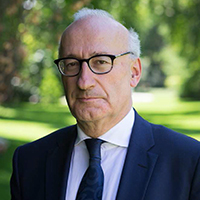
Philippe Etienne is the Ambassador of France to the United States. He previously held numerous posts within the Ministry for Europe and Foreign Affairs, notably including Ambassador of France to Romania (2002-2005), Director of the Cabinet of the Minister of Foreign and European Affairs (2007-2009), Permanent Representative of France to the European Union (2009-2014), Ambassador of France to Germany (2014-2017) and most recently, Diplomatic Adviser to the President (2017-2019).
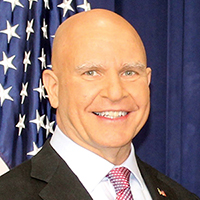
H. R. McMaster is the Fouad and Michelle Ajami Senior Fellow at the Hoover Institution, Stanford University. He is also the Bernard and Susan Liautaud Fellow at the Freeman Spogli Institute and lecturer at Stanford University’s Graduate School of Business. He was the 25th assistant to the president for National Security Affairs. Upon graduation from the United States Military Academy in 1984, McMaster served as a commissioned officer in the United States Army for thirty-four years before retiring as a Lieutenant General in June 2018.
Battlegrounds provides a needed forum with leaders from key countries to share their assessment of problem sets and opportunities that have implications for U.S. foreign policy and national security strategy. Each episode features H.R. McMaster in a one-on-one conversation with a senior foreign government leader to allow Americans and partners abroad to understand how the past produced the present and how we might work together to secure a peaceful and prosperous future. “Listening and learning from those who have deep knowledge of our most crucial challenges is the first step in crafting the policies we need to secure peace and prosperity for future generations.”







